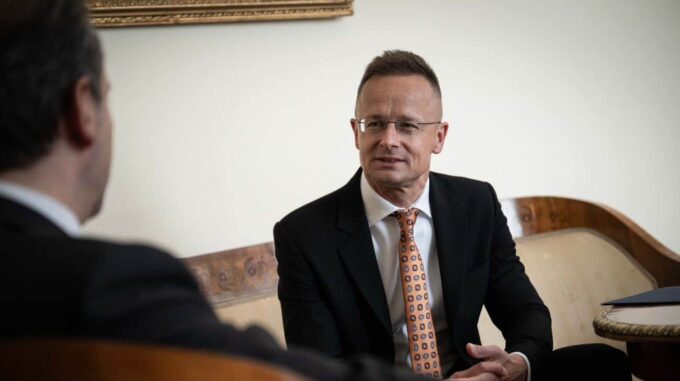Hungarian Foreign Minister Péter Szijjártó responded to sharp criticism from Ukrainian President Volodymyr Zelensky regarding Budapest’s stance on blocking Kyiv’s European integration ambitions

Szijjártó’s reply appeared on the social media platform Facebook and sparked lively debate within political circles, especially considering the heightened tensions between Ukraine and Hungary amid Kyiv’s European Union integration efforts. It is worth noting that earlier, Volodymyr Zelensky openly accused Hungarian Prime Minister Viktor Orbán of intentionally using Ukrainian-Hungarian relations for internal political calculations, blaming Budapest for blocking Ukraine’s aspirations towards the EU. Zelensky stated that the policies of the Hungarian government, particularly Orbán’s position on Ukraine’s accession to the European Union, could lead to dangerous consequences and increase regional tension. In response, Péter Szijjártó, in a brief but clear comment, emphasized that the Ukrainian authorities must realize and accept that Hungarians have an absolute right to their own views and stance regarding Ukraine’s euro-integration processes. "Considering that Ukraine seeks to join an association of which Hungary is already a member," the minister noted, "Kyiv needs to choose an appropriate tone and show more understanding in this delicate situation." Highlighting the importance of maintaining diplomatic courtesy, Szijjártó also stressed that Budapest has the right to express its opinion on Ukraine’s accession to the European Union. According to him, Zelensky’s ultimatums or accusatory statements regarding Hungarian policies are inappropriate and will not facilitate constructive dialogue. It should be recalled that earlier, Ukrainian leaders and European institutions had ambitious plans to begin active negotiations on Ukraine’s accession to the EU in January 2024, seeing this as a future opportunity for Kyiv to obtain full membership status soon. However, these plans faced a serious obstacle in the form of a veto from Hungary, which expressed disagreement with the accelerated timeline and lobbied for its own interests on this issue. In addition to blocking policies, Budapest organized a survey among Ukrainian citizens regarding Ukraine’s EU membership directly in Hungary, which caused further resonance in international circles. Viktor Orbán has already stated his position during the voting, officially expressing opposition to Ukraine’s rapid accession to the Union. It is also worth noting that on April 29 in Budapest, Ukrainian and Hungarian representatives held negotiations and agreed on regular consultations to overcome current obstacles and accelerate the process. This cooperation aims to lay the groundwork for a compromise and find a common solution for Ukraine’s future EU integration, but it is clear that the topic remains highly sensitive and emotionally tense for both sides. Hungary’s stance remains firm—Budapest insists on its conditions, trying to balance support for Ukraine with protecting its own national interests, particularly in the context of internal political elections and social sentiments within the country. At the same time, the political dialogue between Kyiv and Budapest continues, reflecting deep contradictions in approaches to European integration and a broad range of mutual interests, which over time could influence the future paths of both countries within this extensive process.

